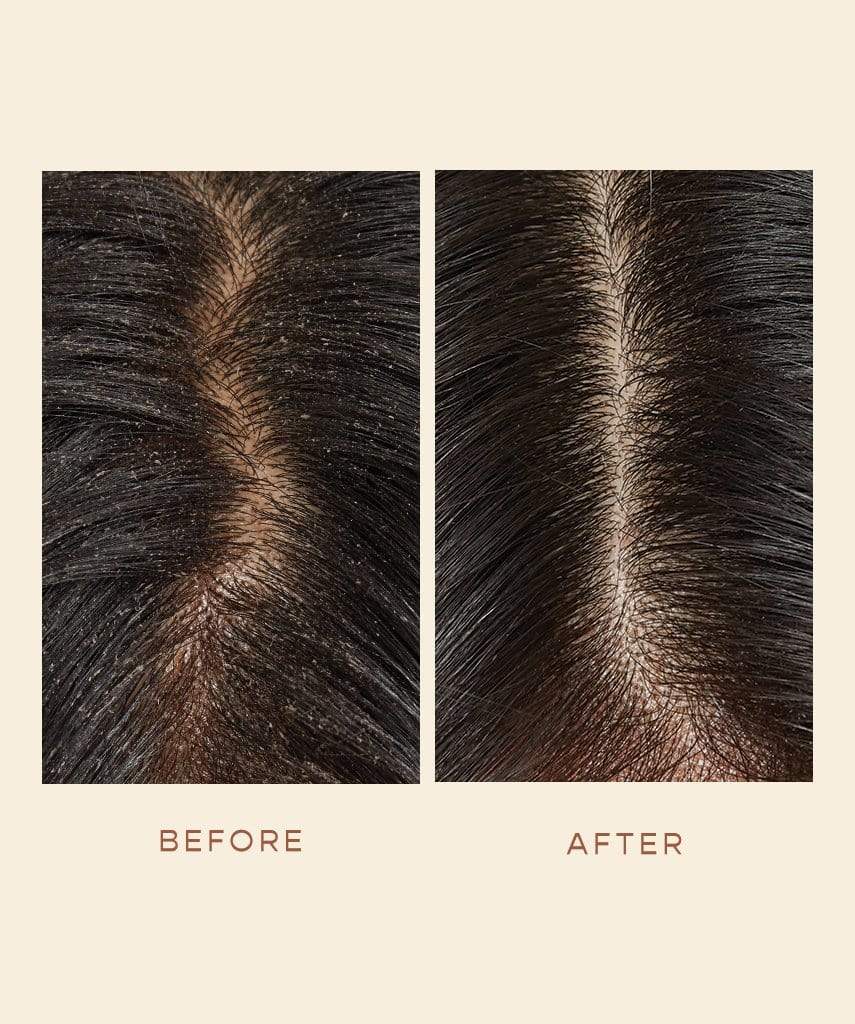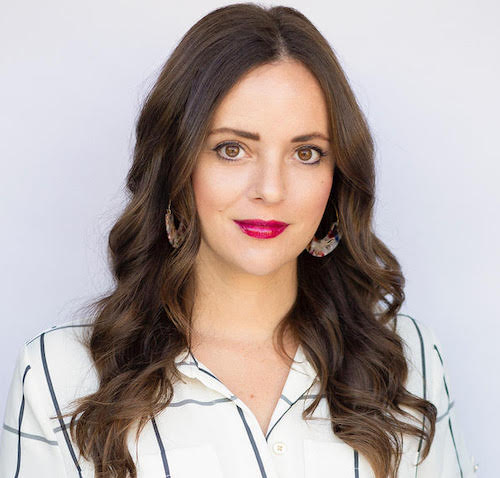You can keep your hair shorter and more manageable with regular trims, but sometimes, it's fun to change it up and go for long hair. However, if your hair growth seems to halt instead of steadily gaining the length you crave, it can be beyond frustrating.
Read on to learn why your hair might have stopped growing and what you can do — plus, find out what products you should be using to encourage thicker, fuller, longer-looking hair.
Causes of Stunted Hair Growth
To explore reasons why hair might stop growing, VEGAMOUR spoke with a certified trichologist Dr. Celestine Gaitu and a hair surgeon, Dr. Harikiran Chekuri.
"Hair usually stops growing when the hair follicles enter into a resting phase and simply refuse to grow any longer," Dr. Chekuri said. "This can be caused by a number of factors, such as genetics, age or stress." Dr. Chekuri explained that it's also possible for the hair to become damaged over time due to poor haircare habits or exposure to chemicals or heat. "This can lead to breakage and split ends that prevent the hair from growing any further," he said.
"Stunted hair growth could [also] be due to nutritional deficiencies," Dr. Gaitu added. "A lack of elements such as vitamin D, zinc and iron, as well as macro elements, could stifle hair growth. Genetic makeup or genetic anomalies and bad grooming habits could also be the cause."
Shop: GRO Collection
Why Hair Seems to Stop Growing at a Certain Length
"Hair growth may stop at a certain length because of the end of the growth phase period," Dr. Gaitu said. "Hair grows in a cycle that has three stages. The growth phase, resting phase and shedding phase. The growth phase lasts for about two to six years ... and is genetically determined." Dr. Gaitu explained that once the hair gets to the end of its growth phase, it stops growing and transitions toward shedding, which precedes new hair growth.
But your hair's growth cycle isn't the only thing that can influence the length of your hair. "Hair grooming practices, such as excessive heat styling and excessive chemical processing and styling, may lead to hair breakage ... and deprive you of your hair length," Dr. Gaitu said.
Related: The Ultimate Guide to Hair Growth Cycles
Factors That Affect Hair Growth Cycles
Whether it's due to haircare habits, lifestyle choices, genetics or medical conditions, there are several reasons why hair growth can become stunted.
Genetics
"Genetics play a role in how quickly and easily our hair will grow, as well as the overall thickness," Dr. Chekuri said. "People who have naturally thick hair will find that it may grow a bit slower than those with thinner hair."
Stress
You've probably heard that stress can turn your hair gray, but it might also make your hair seem like it's staying the same length.
"High levels of stress can cause telogen effluvium, a condition that causes the follicles to enter a resting phase and can lead to temporary balding or an overall decrease in the rate of hair growth," Dr. Chekuri explained. "Reducing stress levels can help encourage faster hair growth as well as prevent further damage. Try activities such as yoga or meditation to help manage any stress that you may be feeling."
The good news is that telogen effluvium is generally temporary, but if it persists, contact your health care provider to discuss your thinning hair.
Also: Yoga for Hair Growth: 8 Stress-Reducing Postures for Healthier Hair
Medication
While some medications might affect the hair growth cycle negatively, some supplements can do the opposite.
"Certain medications, such as antidepressants and chemotherapy drugs, can cause hair to stop growing or become thin," Dr. Chekuri said. "Taking supplements that contain certain vitamins and minerals can also help to promote healthy hair growth. Biotin, silica and zinc are all essential for the growth of your hair."
Related: 7 Reasons You Should Take Hair Supplements
Diet
Diet is a huge factor when it comes to the hair's overall health. "Eating a diet that is low in essential vitamins and minerals can cause your hair to become brittle and weak — and may even lead to an overall decrease in growth rate," Dr. Chekuri cautioned. "Eating a diet that is rich in vitamins and minerals can help promote strong and healthy hair. Foods such as nuts, avocados, spinach and berries are all great sources of essential nutrients for your hair."
Hormones
"Hormonal imbalances, such as those caused by menopause or thyroid issues, can cause hair to become thin and stop growing," Dr. Chekuri noted. If you're concerned that your hair growth issues are related to a hormonal imbalance, consult your health care provider.
See: 5 Ways Hormones Can Affect Your Hair
How to Encourage Thicker, Fuller, Longer-Looking Hair
In addition to eating a healthy diet, adding hair supplements and reducing stress, here are some additional hair care tips to encourage visibly denser, longer-looking locks.
Detoxify Your Scalp
A healthy scalp sets the stage for healthy hair, so it's important to use a scalp detoxifying serum to remove buildup around hair follicles that results from styling products and impurities. Other benefits of a scalp detox include soothing scalp damage and locking in moisture.
Limit Heat Styling
While heat styling is a fun way to create different looks, too much heat can wreak havoc on hair health, deplete natural oils and cause damage such as split ends. "Overusing heat-styling tools such as curling irons or straighteners can cause serious damage to the hair and prevent it from growing any further," Dr. Chekuri explained. "Limit the use of these hot tools and always use a heat protectant in order to minimize damage."
Avoid Too-Tight Hairstyles
Too-tight hairstyles that might stress out your hair include tight ponytails, tight buns, braids, hair extensions and weaves. Instead, opt for loose hairstyles that don't pull on hair follicles.
Consult With a Doctor When Needed
If you are experiencing stunted hair growth that persists, make an appointment with a doctor to make sure your physical health is in check. For example, an underactive thyroid could cause thin hair or brittle hair. A dermatologist is a good resource for any hair loss or scalp issues that you may have.
Avoid Harsh Hair Products
Dr. Chekuri advised using products that contain safe and hair-friendly ingredients, which means no harsh chemicals. VEGAMOUR's product lines are always formulated without phthalates, silicones, GMOs, parabens, sulfates, mineral oils and gluten, which makes them perfect for a healthy hair care routine.
Read: 9 Ingredients in Shampoo To Avoid (And What to Look for Instead)
Use a Hair Serum
A hair serum can help combat hair thinning. However, you don't need to use a product loaded with chemicals (and the potential for unpleasant side effects) to get the results you want.
VEGAMOUR's GRO Hair Serum is a vegan, cruelty-free formula that's applied daily to the scalp. It contains curcumin stem cell extract, mung bean and red clover. It:
- Reduces signs of shedding by up to 85%*
- Increase the appearance of hair density by up to 56%*
*Based on a 120-day independent, third-party clinical study with 40 participants using GRO Hair Serum once daily.
Use Hair Masks
"Moisturize your hair often to keep hair breakage away," Dr. Gaitu said.
Dryer hair often leads to damaged hair if not addressed. If your existing hair is full of dry or brittle strands and split ends, swap out your conditioner once or twice a week with our HYDR-8 Deep Moisture Repair Mask.
This hydrating mask instantly quenches dry strands and improves the appearance of hair damage, no matter your hair type. It's powered by Karmatin™ (our vegan silk alternative to keratin and silicone), which bonds to the hair shaft, helping to reduce frizz and fortify strands. In just one use, you can achieve 7x times the hydration and 3.5x stronger strands!
The Takeaway
While genetics, hormones and medications can cause your hair growth to come to a halt, there are still things you can do to get the best out of your hair. For example, reducing stress, eating a balanced diet and incorporating supplements and products that encourage thicker, fuller, longer-looking hair into your routine can help you achieve your best hair yet!
#include-related-slider#
More From VEGAMOUR
- Do Split Ends Stop Hair Growth?
- Why Exercise Should Be a Part of Your Hair Growth Routine
- Baby Hairs or Breakage? How to Tell the Difference






















